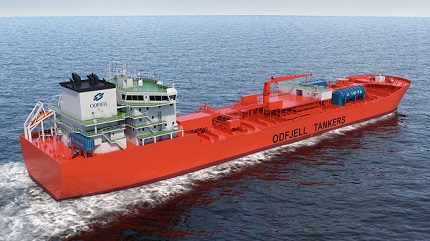
The main partners in the project are Odfjell, Prototech, Wärtsilä and Lundin Energy Norway. Odfjell has leading expertise in global shipping, Prototech in fuel cell technology, Wärtsilä in maritime technology and energy, and Lundin Energy Norway in oil and gas.
“Our tests show a CO2 reduction of as much as 40-45% when using LNG, compared to current solutions. Increased efficiency and reduced fuel consumption also provide significant cost savings, and the ship will be able to sail significantly longer on the same amount of energy. The system will also be ready to operate completely emission-free from the locations where, for instance, ammonia is available for bunkering,” says Bernt Skeie, CEO of Prototech.
“The technology also enables direct capture of CO2, which will be yet another alternative for emission-free operation when logistics for CO2 management become available,” Skeie explains.
The system will first be tested at the Sustainable Energy catapult centre in Norway before installation on board a chemical tanker. The unique project was presented to the Norwegian Prime Minister, Erna Solberg, during a ceremony celebrating an expansion of the catapult centre into “Future Fuel Test Centre”.
So far, the project has been funded with support from Gassnova, NFR, and the participants themselves. Now the project is constructing a 1.2. MW prototype fuel cell that first will be tested at the Sustainable Energy catapult centre at Stord, Norway. Then it will be mounted and tested onboard one of Odfjell’s newest chemical tankers.